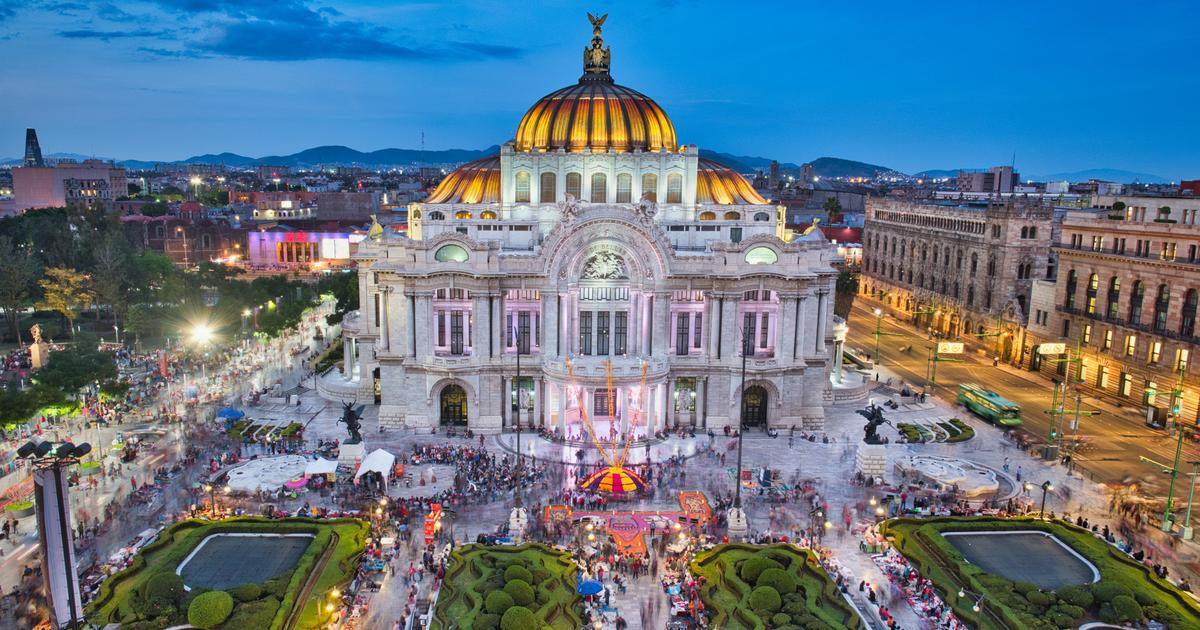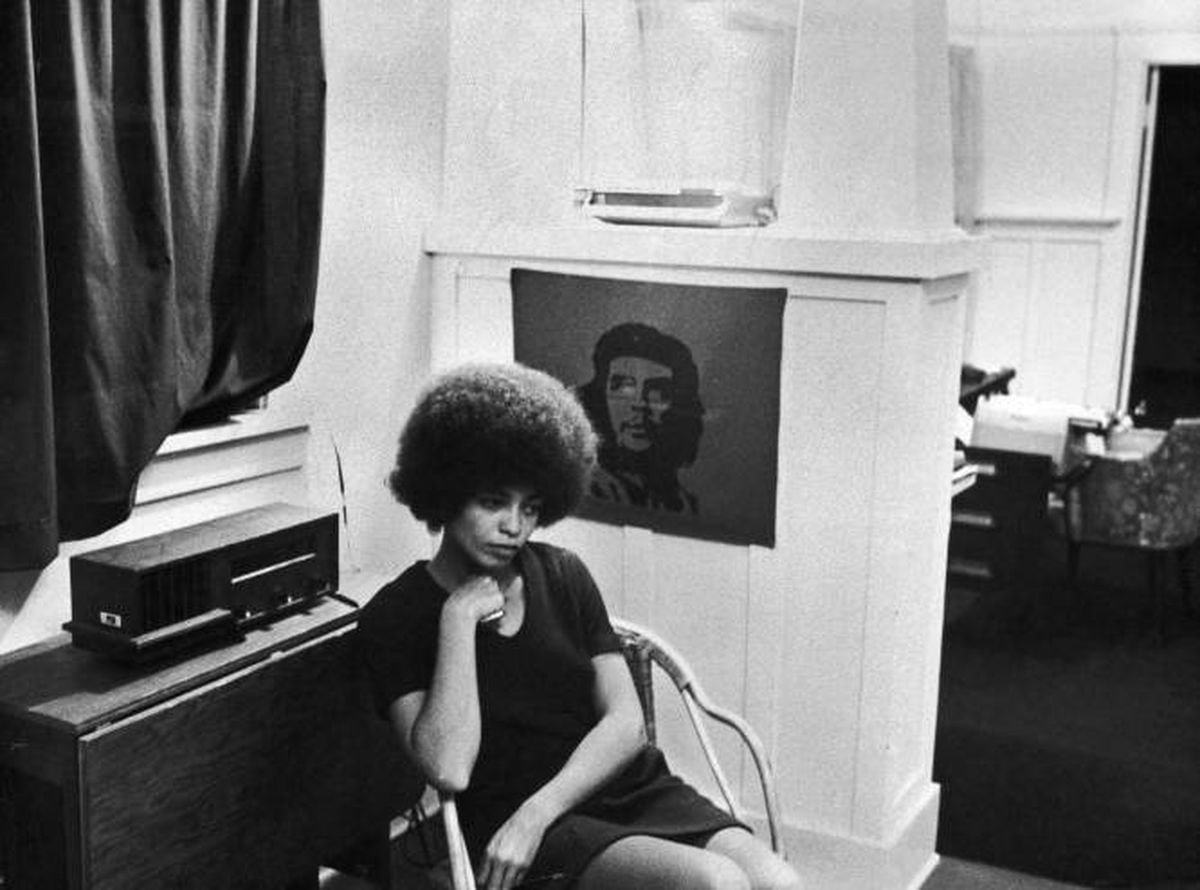Mikel Arriola, president of Liga MX, during a press conference in Querétaro, on March 6. Hector Vivas (Getty Images)
All of Mexico was caught off guard by the chaos that broke out last Saturday at the La Corregidora stadium.
The match between Querétaro and Atlas did not mean a high-tension match, the one in which there were some incidents in previous years.
The overconfidence of the Gallos board caused 26 injuries, three of them serious.
It also meant his five-year ban from football, a one-year stadium ban and the sale of the club.
“It is the first time that a League has forced the sale of a club as a sanction.
That has not been dimensioned, ”says EL PAÍS Mikel Arriola (Mexico City, 46 years old), president of the MX League.
The crusade that he has started in the offices is against all the brave bars, or clubs, to gradually disappear them.
Until now,
the authorities of the Government of Querétaro have arrested 17 people and are still persecuting another 14 suspects.
His next game, away against Necaxa, will be played without an audience due to an initiative of the Government of Aguascalientes.
Ask.
Do you remember what you were doing when the acts of violence occurred in Querétaro?
Answer.
I was finishing lunch with my family in Mexico City.
We were in a game day that seemed normal until that terrible 60th minute arrived in Querétaro.
P.
What was your first reaction after seeing the images?
R.
We have a control group that is very active.
We have to manage more than 1,000 games a year, so there are times when we have simultaneous League, Second Division or women's games.
We have quite efficient alert systems.
By minute 61, he was already talking on the phone with the director of competitions, Víctor Guevara, and also with the director of stewards, Héctor Cachola.
"We have this general anger and they are invading the field."
The first question was: do we resume the game or not?
The next minute, seeing the images [of rampant violence], the decision was not to restart and send the teams to the locker room, evict the referees.
And from there review with public security the State of the situation.
P.
What did you think of those violent images in the stands?
R.
This was an unusual thing, that we were seeing an orchestration of an attack that has nothing to do with football.
From that moment, when it all started, until now we have not stopped being on top of the problem.
And then comes unconfirmed information where the "dead" are spoken of.
If you see the images and they tell you that there are 80 dead, you believe it.
That unconfirmed information of 17 deaths caused the sky to fall on us.
At the time we also had to define what to do with the following matches.
Out of respect and duel we had to send a message, but we also had people already in the stadiums.
The dilemma was that we could generate more violence if we didn't play the other games.
What we did was keep the rest of the day and send a message that the next day's games were not going to be played.
And, in parallel,
P.
You have already mentioned that the main failure in this case was the terrible performance of the security company in the stadium, but why was there no state or municipal police?
R.
Because by disposition of the municipal authorities, state public security and Civil Protection in that stadium they do not put public force neither in the stands nor on the field.
The pretext is that there are confined areas of the bars.
So they assumed that control was going to be given in those areas and that's where the worst problem comes from.
When the blows begin, private security is conspicuous by its absence.
When a fight starts in a gallery, what you have to do is put it down or it can generalize.
And that was what happened.
You see TV shots where supposedly infiltrators from the bars in the private security company open the confined doors.
This is where chaos spreads.
This is in the commissioner's report that he submitted to the Disciplinary Commission.
Everything is ratified by the Querétaro board, they assume responsibility.
P.
Were there infiltrators among the security?
A.
Presumably because there is an element of evidence, which is presented in the Commission, where the method of recruitment of this private security company was to offer 300 pesos to be a security element.
And those 300 pesos were paid after the game.
When many saw the imminent danger, they took off their security shirts and left.
The prosecutor will have to tell us, but it is likely that they infiltrated.
The violence in the La Corregidora stadium, on March 5, in Querétaro.Sebastián Laureano Miranda (.EFE)
P.
Why do you think people still distrust the official figures?
Some believe that there were deaths.
R.
When they gave the erroneous data of the 17 dead, that was already a truth with which people stayed.
You see the images, you see the naked and inert bodies.
And then you see that a credible journalist [David Medrano], who by the way has already apologized, said that there were 17 dead.
I don't blame the journalist, but at the moment they tell you this, minutes after what is happening, the perception remains.
The balance that is given, to date with data from Querétaro and Jalisco, there is no confirmation of deaths.
Q.
Was it inevitable that the generalized violence in Mexico would spill over into football?
R.
We were used to the security protocol, that protocol had worked and reinforced.
What we were not prepared for was the anonymity of the bars.
It was fertile ground for any mechanism external to football to infiltrate.
I would not like to conclude anything because the investigation is open.
It will help us a lot that the conclusion of the Public Ministry and the testimonies of the detainees.
Know how this happened from within the group, who planned it and why.
Know the criminal record.
It was not something that was not arranged.
P.
You assured that expelling or disaffiliating Querétaro would mean making the least guilty pay and a blow to the economy.
How much are the losses estimated?
R.
In direct and indirect jobs, 15,000 jobs would have been lost.
Also, we are talking about the development of basic forces.
Imagine there are 22 players for each division: under 13, 15, 17, 20, plus the women's team, plus the men's club squad.
From a regulatory point of view, it was a mistake because by wanting to sanction a directive that did not do its job, it was passing the cost of the sanction to other actors who had nothing to do with it.
We decided to go straight to the culprits.
We took into account previous records of disaffiliation, such as Veracruz, which left a debt that could not be collected.
According to data from the Players Association, Veracruz soccer players never received their payment.
P.
Are these sanctions enough?
R.
We accept that it is good to disagree on something.
We want to explain that the sanctions we imposed have to do with the causes.
And we thoroughly investigate them.
The first: bad administration, which was disabled for five years.
The second: the anonymity of the bars.
This is the beginning of the end of the bars because first we will take away the ability to go to other stadiums, then we will ask them for something that they have never been willing to give: their face, their identity.
The local bars will have to register in our Fan ID, there we will make a first discard.
Whoever does not have a Fan ID will not enter the stadium.
And if he enters the stadium, we will ban the stadium.
We see teams that are anticipating the measures, such as Guadalajara.
They seem to me to be positive signs that give us the path to carry out the purge,
You have to remove the bad fat from the animation groups.
When I was a child there was the "Chiquitibum".
Then the bars came and contaminated him, they prostituted him.
That of the chants, that of the mafia that pressures the club to do certain things, that threatens the players.
We do not want that model.
We want family entertainment groups that fill the stands, that rival fans can sit down.
An altar in Guadalajara for Atlas fans who ask for the recovery of the injured and justice after the acts of violence. ULISES RUIZ (AFP)
P.
Can you say, then, that the brave bars are the cancer of Mexican soccer?
R.
They are a cancer and we are already at the beginning of their end.
P.
From Liga MX or the Mexican Football Federation are they aware of who the leaders of the bars are?
R.
Rather, those who have the knowledge of the leaders and have some factual relationship to administer them are the clubs, at different levels.
Any type of help from the clubs will be prohibited.
Talking about this helps clubs because these leaders assume that they own the club.
Q.
Can you guarantee that going to a stadium will be safe for families?
A.
It will certainly be safe.
The fan who goes has obligations of civility, whether or not they are from an animation group.
We are going to ensure the environment and we are going to continue asking him not to shout the homophobic chant, not to generate violence against opponents, that we have an open and suitable environment so that whoever goes demands a good show.
P.
Is the case of Monterrey worrying, where fans have put blankets and even coolers with the faces of the players, as if they were drug messages?
R.
It worries and occupies.
Our job is to support the teams when these things come up.
Everything is accumulating.
When these events were presented a few weeks ago we did not have the power of the Assembly to directly tackle these issues, to separate these people from the fans.
If we change one of those criminals for five families, what happened in England will happen.
In the eighties,
hooligans
left dozens dead and the authorities made a blacklist.
Today is the most valuable league.
Q.
Do you think drug trafficking groups are involved in the bars?
A.
I don't know, it would be good to ask the prosecutor and the judge in Querétaro.
Tell us in the appropriations.
You have to know what those conclusions are.
P.
Is Mexico far from the cases of Argentina, Brazil or South America where tragedies and fatalities have occurred?
R.
It is far away, but if we do not do something we get closer.
It is a good time for us to make a decision and not kidnap football.
We are in a good time to reverse.
Q.
Do you miss politics or public office?
R.
I am happy in football, it is a wonderful activity.
I have had a very difficult challenge.
My challenge is to be above the problem and solve it.
Take advantage of this crisis to improve.
This complexity of the Querétaro episode is one of the most difficult challenges not only in my career, but in my life.
subscribe here
to the
newsletter
of EL PAÍS México and receive all the informative keys of the current affairs of this country
Exclusive content for subscribers
read without limits
subscribe
I'm already a subscriber

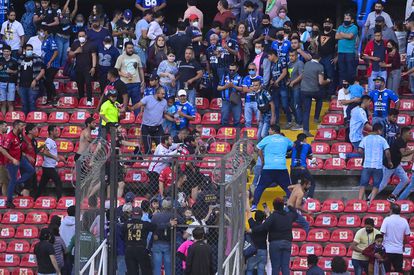
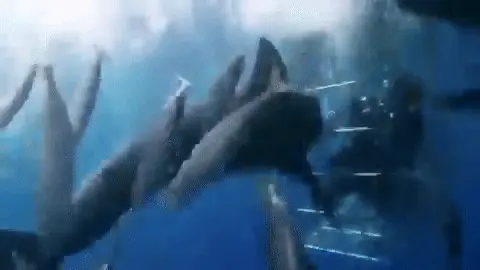
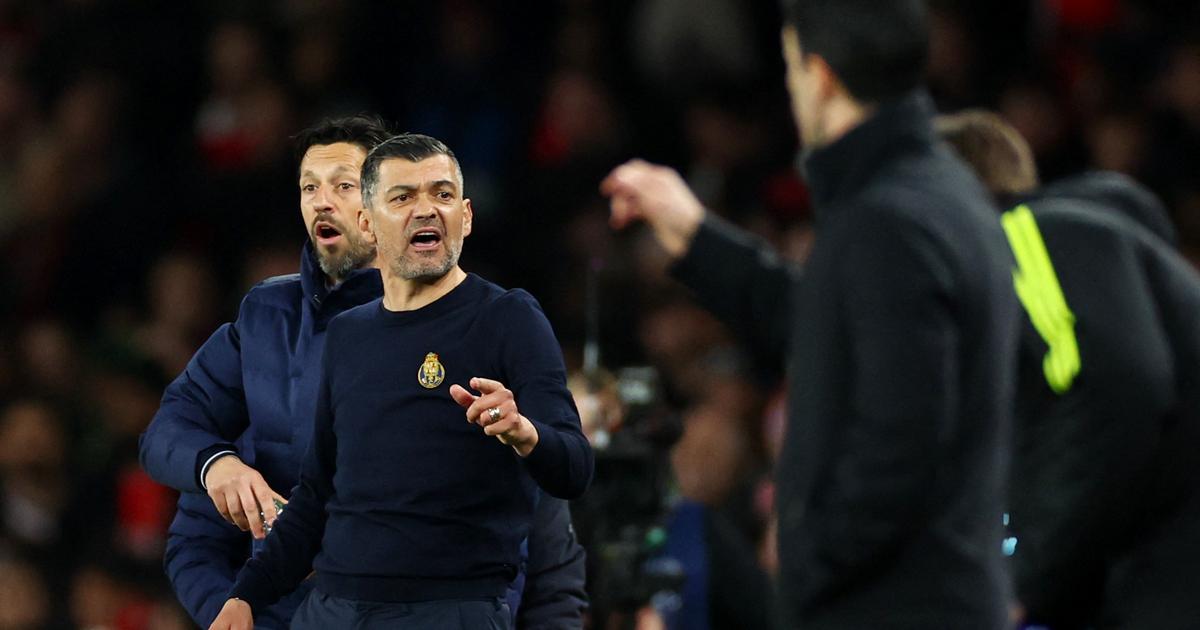
/cloudfront-eu-central-1.images.arcpublishing.com/prisa/JTORQDUXRRD7ZGW7LRVIROJF7I.jpg)
